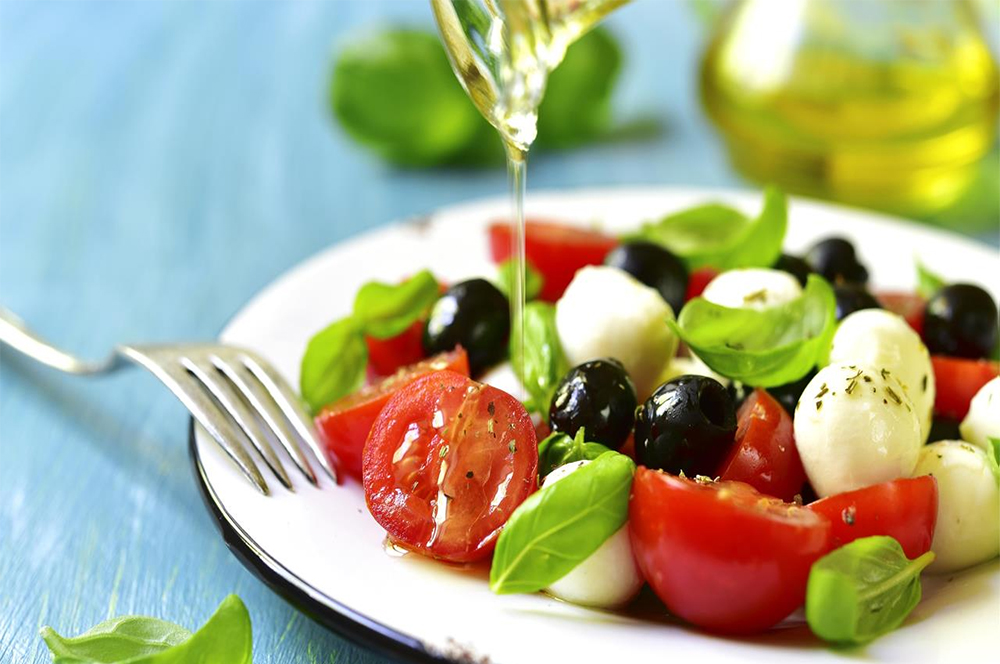For years, doctors have been telling patients with high cholesterol and a risk of developing heart disease to follow a Mediterranean diet, which favors fish and poultry over red meat and includes fruits, vegetables, whole grains, nuts and olive oil. However, according to a recent Italian study published in the International Journal of Epidemiology:
A MEDITERRANEAN DIET ONLY WORKS IF YOU HAVE A HIGH INCOME OR YOU’RE HIGHLY EDUCATED.
The study looked at 18,000 subjects and found a reduction in cardiovascular risk only in people with higher educational levels or a greater household income — or both. Those who were not as rich or as smart? The less advantaged groups showed no actual benefits from the Mediterranean diet.
People with higher incomes and education levels were more likely to report eating a diet comprising more whole grain or organic foods and a greater variety of fruits and vegetables, providing a wider range of vitamins and antioxidants, the study found. “Other factors beyond quantity and frequency appear to influence future health outcomes, and one of them may be quality of foods,” Marialaura Bonaccio, lead author of the study and a researcher at IRCCS Istituto Neurologico Mediterraneo Neuromed, an Italian clinical research institute, said in an email. “This is an extremely novel concept that will surely improve our knowledge on the complex balance between diet and health.”
A DOCTOR WHO TELLS A LOW-INCOME PATIENT TO FOLLOW A CERTAIN DIET ALSO NEEDS TO ADDRESS HOW TO MAKE IT DOABLE ON A BUDGET.
The challenge with a Mediterranean diet is that it calls for high-quality and expensive foods — such as wild-caught fish and extra virgin olive oil — making it difficult for a low-income family to follow, says Jackie Arnett Elnahar, a registered dietitian based in the New York City area and CEO and co-founder of TelaDietitian. For example, whole grain bread is pricier than white bread and wild-caught salmon from Alaska is more expensive than farm-raised salmon from China, which is more likely to contain fish coloring and pollutants, she says. And low-income families are less likely to spend extra money on organic produce or try a new fruit or vegetable, she notes.
Similarly, the study found that a €2 bottle of extra virgin olive oil is unlikely to have the same nutritional properties as a €10 bottle. The hypothesis: “Differences in the price may yield differences in healthy components and future health outcomes,” Bonaccio said.
The key takeaway of the study: A doctor who tells a low-income patient to follow a certain diet also needs to address how to make it doable on a budget, Elnahar explains. Patients on a Mediterranean diet could be encouraged to eat sardines and anchovies, which provide omega-3 fatty acids but are cheaper and easier to purchase than wild-caught salmon. Fresh fruits and vegetables can be supplemented with frozen, which are less expensive and basically provide the same nutrients, Elnahar says. If kale is too pricey, red and green leaf lettuce are good substitutes.
Bonaccio agrees that patients need to be given more information about diet and its relationship to health. Everyone knows that eating fruits and vegetables is good for us, but few may know that variety is as important as quantity.
Laura Bourdeanu, a nurse practitioner who has followed a Mediterranean diet most of her life, says the underlying message from this study is that if you’re concerned about your health, it may be worth it to spend a few extra dollars on higher-quality foods. If you can’t afford organic fruits and vegetables, focus on increasing your intake of fish and nuts, she says.
Some food for thought … and the heart.

